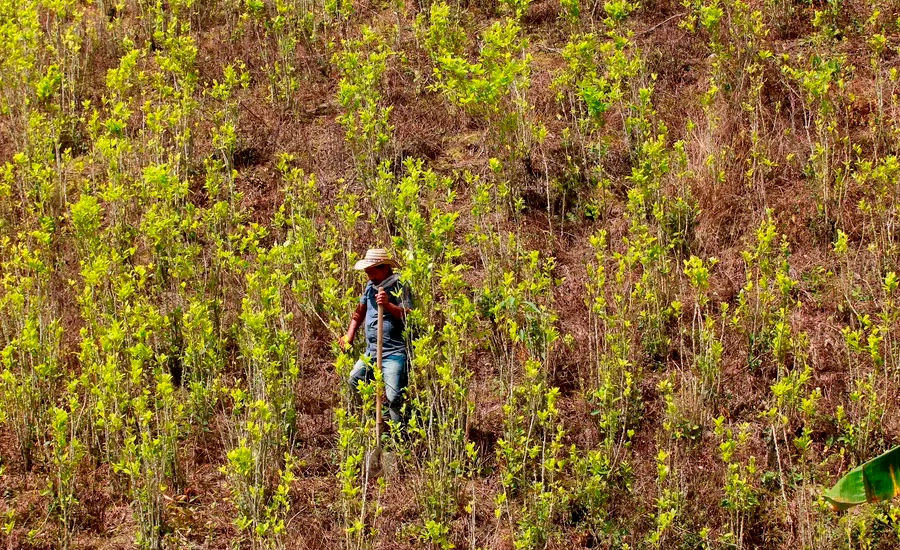On January 3, the National Narcotics Council (CNE) met to discuss, among other issues, the implementation, monitoring and evaluation of the National Drug Policy for the next 10 years that the Government of Gustavo Petro is preparing.
At that meeting, the Ministry of Justice, headed by Néstor Osuna, would have proposed two resolutions to be studied. One of them would have to do with the legalization of peasant coca mini-cultures in different areas of the country, prior to the signing of agreements with rural associations. This was stated by the newspaper El Tiempo in its latest edition.
According to the aforementioned medium, crops between 2.5 and 10 hectares would be legalized, depending on the region. With this measure, it would seek to reduce the persecution of peasants, who are prosecuted for mixing illicit crops with those for food.
Goal of eradication of illicit crops for 2023 was reduced from 50,000 to 20,000 hectares: Police
This information is released after the director of anti-narcotics of the National Police, Colonel Edgar Cárdenas Vesga, confirmed that the goal of eradicating illicit crops for 2023 is 20,000 hectares, while for 2022 it was 50,000 hectares.
The official indicated that of the 50,000 hectares projected for 2022, only 44,000 were eradicated. According to him, he pointed out, to a large extent, it was due to the blockades in the territories by the communities that prevented the entry of the Public Force.
“Last year the goal was 50,000 hectares and we reached around 44,000. This has to do with this change in the multi-crime structural affectation that is directly related to the affectation of their finances, through asset laundering and asset forfeiture processes and also the seizure of narcotic substances,” explained the director of the Anti-Narcotics Police.
Since he assumed the Presidency of the Republic, Gustavo Petro, has indicated that the anti-drug policy must be changed at the national and international level.
In the midst of the Assembly of Coca Growing Organizations, in Catatumbo, the head of state assured that from his administration the policy of forced eradication will be changed, “it is not intended to allow cocaine, but rather to seek to capture the owners of that product and not to those who harvest the coca leaf”.
Forced eradication plans have sparked violent clashes between authorities and farmers defending their crops. In his statements this Tuesday, Cárdenas Vesga said that this decision has been made under the guidelines of the national government regarding the eradication of illicit crops, along with the security policy of reducing forced eradication.
“We are estimating the orders of President Gustavo Petro, who has been emphatic, above all, in the affectation of multi-crime structures, that is, that they are directly related to interdiction and that is where the strength of the National Police will be,” he said. .
For the national government, lowering the goal in the eradication of illicit crops is to protect the peasant. “The ideas that you have expressed here to find other paths seem pertinent to me. We must explore them together, you and us, if they turn out well and if not, they should be changed. For example, one that had been mentioned at some point: if a farmer who produces coca leaves takes away his crop, he doesn’t know what awaits him: hunger,” Petro said from Catatumbo.
However, the director of anti-narcotics affirmed that work will continue on the seizure of narcotic substances such as cocaine hydrochloride, cocaine base or marijuana. In the same way, he maintained that “the eradication will continue. We are in that planning precisely to establish the places where this forced eradication will take place.”
The measures announced by Gustavo Petro to change the substitution of illicit crops have had international repercussions. For example, from the United States a message was sent to the President of Colombia, saying that it is “important to make a transition gradually and not immediately, so forced eradication must continue.”
In the document, the United States government clarified that it will continue to work with Colombia “to implement a holistic approach to address counternarcotics challenges.” Following this, he mentioned the efforts in comprehensive rural security, justice and development, environmental protection and integrated reduction of drug supply that both countries must carry out. with Infobae
